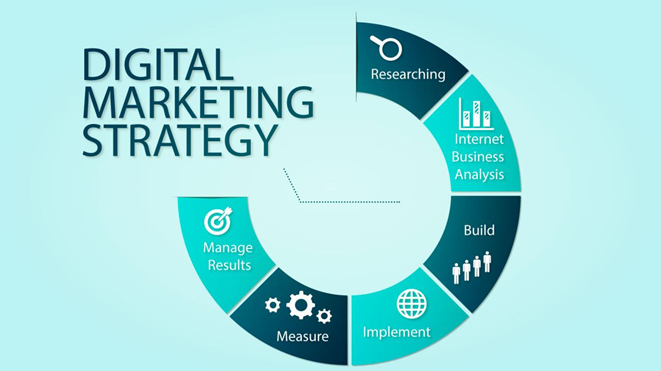The current high-speed digital age has seen businesses never again relying on the traditional marketing as the mode of reaching their target audience. Digital marketing strategies are imperative to ensure maximum success because the internet has transformed organizational approaches to reach customers. Whether it is your emerging business, a young startup or an already established organization, the secret of keeping up with a competitive market is learning more about the indefinable world of digital marketing.

Digital Market Core Strategies to pursue
1. Search Engine Optimization (SEO)
Digital marketing is anchored on SEO. It is all about getting your site higher on search engines such as Google. They can receive organic traffic by optimizing content, using the right keywords, and by earning quality backlinks and hence paying less attention to paid advertisements.
Hint: Remember to change, as well as, update your materials on a regular basis and optimize your materials to the user as well as the search engine.
2. Content Marketing
The phrase in the digital world is, it is content king. Customers want value; value in the form of blogs, articles, infographics, podcasting and videos would help build the brand authority. Excellent content does not just inform, but also makes people trust and complete conversions.
Tip: You should produce work that your audiences need and share it in different places.
3. SSM-Social Media Marketing

Such sites as Instagram, Facebook, LinkedIn, and TikTok are effective tools to communicate with the audience. Social media marketing assists in brand awareness, lead generation and customer loyalty fulfilling various activities such as communicating with followers and executing ad campaigns.
Hint: To gain a good social media presence, it is important to be consistent and authentic.
4. Pay-Per-Click (PPC) advertising
Advertisements like Google Ads enable the businesses to show relevant advertisements to the prospective clients. As opposed to SEO, PPC is instant, which is good to generate traffic and leads fast.
Tips: Monitor conversions and never stop improving your ads campaign to have a better ROI.
5. Email Marketing
The use of email is still one of the most successful digital marketing tools. One-to-one email maintains customers up to date with promotions, new products, and useful contents.
Tip: Separate your newsletters by category to be able to offer more interesting and specific information.
6. Influencer Marketing

When working with influencers with who share a resonance with your target audience, you can make a substantial increase in the brands visibility and the trust to it. Micro-influencers, especially, can be cost effective by providing communities that are highly engaged.
Tip: Don not necessarily select influencers based on the number of followers. Go for people sharing similar values with your brand.
7. Data-Driven Marketing and Analytics
There is no strategy that can be complete without the measurement of its effectiveness. Such tools as Google Analytics, social media insights and so on can be used to monitor customer behavior, campaign performance, and ROI.
Reminder: Don t be afraid of data insights: You can use them to polish your strategies and act accordingly.
The Relevance of Digital Marketing today
Bigger Reach: Reach out to world by merely a few clicks.
Cost-Effective: cheaper than traditional advertising.
Measurable Results: See what is working and what is not as it happens.
Customer Engagement: Create a bilateral dialogue with your followers.
Dynamic Competitiveness: To be ahead in time, make use of contemporary tools and trends.
Final Thoughts

Getting acquainted with the depths of digital marketing tactics is the same as opening a world full of endless opportunities. All these tactics, be it SEO or creation of content and social media participation, are crucial to the establishment of smooth online presence. Key is identifying the right combination of approaches according to what your goals in business are.
With the ongoing development of technology so will digital marketing. The dynamically altered world of business implies not only survival but thriving: those business entities able to adjust and to innovate will emerge thriving in the digital landscape.
